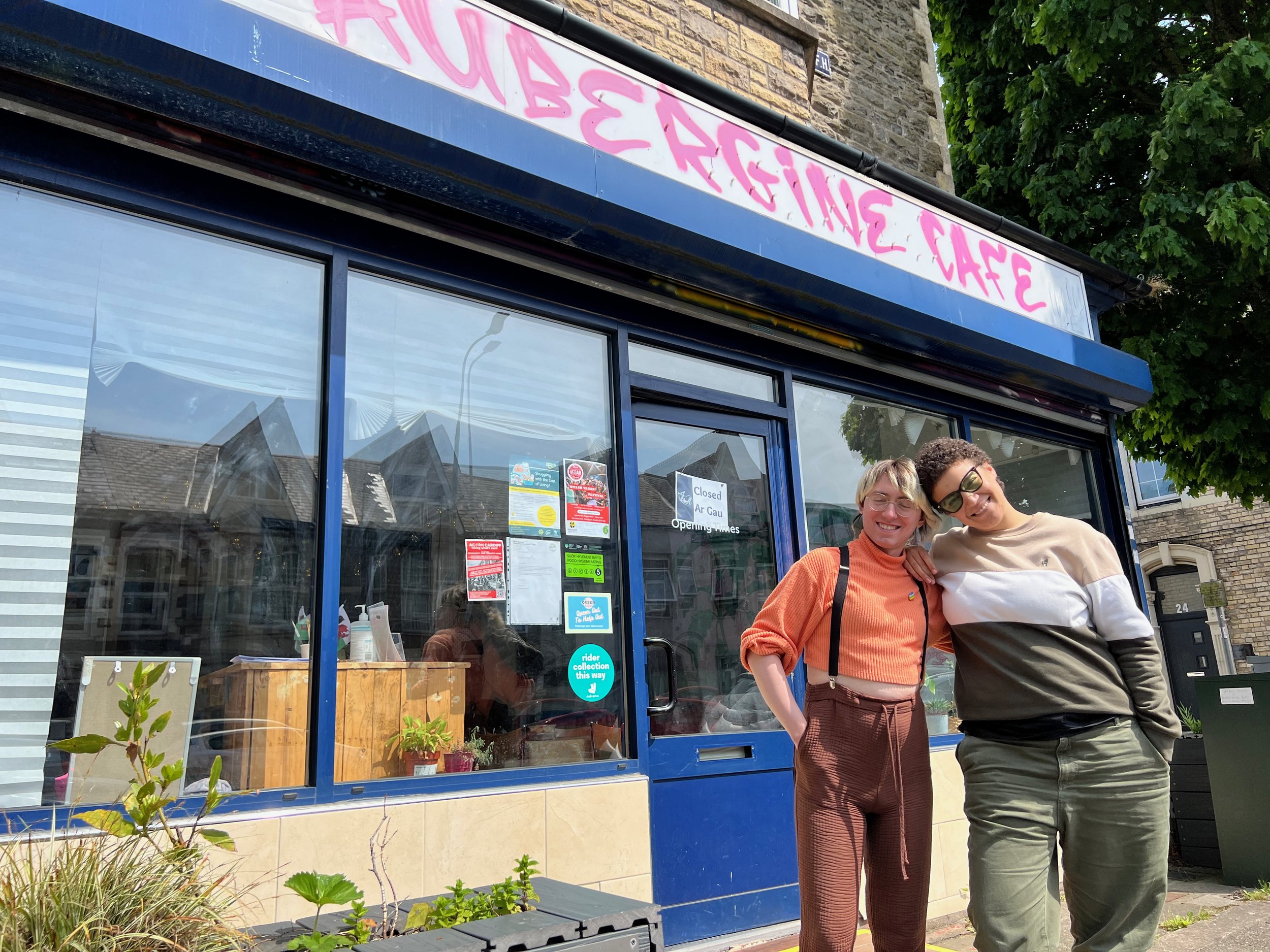My First Radio Documentary
So, we made a radio documentary about the Aubergine Cafe, an inclusive cafe that is run by autistic people for autistic people.
Most of the team had not made a radio documentary before and what started out as a hopeful idea resulted in a commission from BBC Radio Wales.
Aarwn, the lead creative of the Aubergine murals project (left), and Selena, Aubergine Café’s founder and director (right)
We didn’t just want to make a radio documentary, we wanted to make a documentary that empowered marginalised voices, educated our listeners and was an incredibly enjoyable experience for both interviewees, presenters and crew.
The bar we set ourselves was pretty high. Did I mention that we had never made a radio documentary before?
We liked the idea of the Aubergine Cafe because it proves that when something is built for disabled people by disabled people, they are empowered within that environment to thrive.
It’s given the Cardiff autistic community great benefits and a hub to network, meet new people, self-advocacy, and when it was threatened with closure due to their landlord raising the rent by 50%, it felt like a no-brainer to pitch the story to the team.
I was really happy when my colleague Cerys approached me and said that she liked my idea and was going to pitch it to BBC Radio Wales. Cerys, using her wordsmithing skills, did most of the heavy lifting when it came to getting a coherent story onto paper.
I helped by researching the background of the cafe and gave pointers for inclusive language and approaches to the story.
Selena on hypersensitivity and how sensory inputs can be registered differently by neurodivergent brains, making seemingly typical human experiences overwhelming.
After a week of refining the documentary’s outline into something we were happy with, we submitted it. It was a long wait before it got picked up by the BBC and we had a meeting with the BBC Radio Wales Commissioners to discuss the programme.
I was really nervous but the resident radio documentary maker, Alex, was there to convince the Beeb that this documentary was going to be well produced, inclusive and well researched. Fast forward a few months and it was given the green light.
After the initial high of getting this commission, we now had to learn how to create a radio documentary. It was only 27 minutes long, and we had a lot to cover.
After a week of refining the documentary’s outline into something we were happy with, we submitted it.
It was a long wait before it got picked up by the BBC and we had a meeting with the BBC Radio Wales Commissioners to discuss the programme.
I was really nervous but the resident radio documentary maker, Alex, was there to convince the Beeb that this documentary was going to be well produced, inclusive and well researched. Fast forward a few months and it was given the green light.
After the initial high of getting this commission, we now had to learn how to create a radio documentary. It was only 27 minutes long, and we had a lot to cover.
Thankfully, we had the talented Kizzy Crawford on hand, who did a fantastic job of presenting whilst continuing her journey of exploring autism at the nation's first neurodivergent-led sanctuary.
The first thing we did was plan what we wanted in our documentary. We brainstormed ideas and narrowed down what we felt was going to be the impactful things we could use to get our story across. These things were interviewees, expert voices, a presenter and a sensory overload simulation; all very straightforward stuff!
Once we had narrowed this down, we got to arranging interviews and approaching organisations like Autism Cymru on how best to approach working with autistic people. The advice we got was invaluable and relatively straightforward and taught us that autism is an incredibly diverse range of symptoms that vary widely from person to person.
The best thing is to think, if you’ve met one person with autism, you’ve met one person with autism. We created special briefs with exhaustive equipment details to ensure that our interviewees knew what was coming. We added start and end times to the interviews and allowed for multiple breaks during the interview process.
We got to learning technical stuff too. Like how to work with sound. After our first training session with a sound engineer, we realised that there was more to sound than setting up a microphone and pressing record. It got complicated very quickly and quite challenging.
However, I found that the best way to learn how to record sound was by getting as much practice with the equipment as possible. So we went out and got field recordings in busy cafes, recorded dummy interviews and I went on a radio course with Radio Plattform after work. I still ran into some issues whilst recording, however, we managed to work around them by writing a killer script.
Writing the script took longer than I expected. My experience with script writing comes from A-level Drama and not much else. So Cerys and I learnt how to write a radio script through the support of Alex and Ash who showed us examples, gave incredible feedback and workshopped some problem areas. I was really happy when the BBC received it and sent back no revisions (apparently a rare thing).
Overall, I thoroughly enjoyed working on this project and I’m glad that we as a team managed to create something that we all feel very proud of.
I’d also like to thank Ash for helping develop the story and keep us on track with deadlines and Dave for taking some killer photos and videos of our presenter, Kizzy Crawford.
The Aubergine Cafe is available to stream on BBC Sounds. If you’ve not already given it a listen, Tune in while you can and explore the subtle changes we can all make for a more inclusive world.







